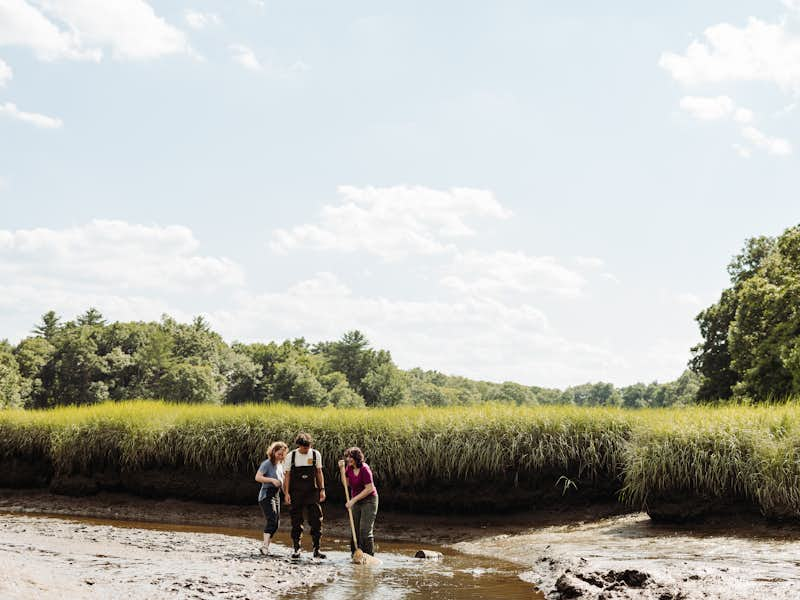Overview
Do you want to be on the frontlines of policy change to help preserve the planet? Are you concerned about the impact of human activities on the environment? A Bachelor of Arts or Bachelor of Science in environment and sustainability will help you develop the skills and knowledge you need to address issues like climate change, biodiversity loss and pollution.
Featured on the Princeton Review's "Green" College list since 2013, Gordon staff, students and faculty are committed to tackling issues of sustainability and resource efficiency on campus, in our community and throughout the world. By studying God’s creation through the lens of a Christian liberal arts education, you’ll be prepared to help solve some of the large-scale ecological challenges facing our planet today.
Why study environment and sustainability at Gordon?
At Gordon, you’ll be taught and mentored by leaders in the fields of ecology and green chemistry whose commitments to creation care stem from their Christian faith.
Our expansive 485-acre wooded campus and our proximity to the Atlantic Ocean provides unique outdoor learning environments for conducting research. In addition, our partnership with the Au Sable Institute enables students to enroll in courses leading to certification as a naturalist or specialization in land, water or environmental resources analysis.
What can Christians bring to environment and sustainability?
God commissioned Adam to rule over creation. To this day, Christians can honor that charge by focusing their efforts on creation care, environmental protections and sustainability. By learning and teaching others environmental stewardship, we can make a difference for generations to come.
| Degree | Bachelor of Arts, Bachelor of Science |
|---|---|
| Program Level | Undergraduate |
| School | School of Science, Technology and Health |
| Program Format | In-Person |
Learn more
Enter your information and an admissions counselor will be in touch!
By providing your mobile number, you agree to receive calls and text messages from Gordon College, which may be powered by AI. Message frequency varies. Message & data rates may apply. Reply HELP for help or STOP to cancel. Terms of Service and Privacy Policy
Courses
Environmental Science and Sustainability Courses
-
Degree Options
Experiential Learning
Get experience outside of the classroom with:
- Advocates for a Sustainable Future student club
- Biology Club
- Internship opportunities at MA Audubon Society and US Fish & Wildlife Service ECHO Farms Spring Break Trip
- Creation Care Studies in New Zealand
- Au Sable Institute during summer in Michigan or Washington
Apply to Gordon
Take the first step toward a nationally ranked Christian liberal arts education.
Scholarships
We’re committed to working with you to make college accessible. Gordon offers a wealth of generous scholarships to lower your cost of attendance.
Faculty
Faculty
Nationally recognized, personally focused
Gordon faculty are committed Christians, exceptional scholars, and catalysts for transformation—both in their fields and in the lives of the students they teach.
Careers
Life after Gordon
What careers can I pursue with Environmental Science and Sustainability?
Now more than ever students who major in sustainability have a voice in shaping and changing the world for the better. You may consider a career in:
- Sustainability coordination
- Environmental science
- Renewable energy
- Environmental engineering
- Conservation biology
- Environmental policy
- Sustainable agriculture



